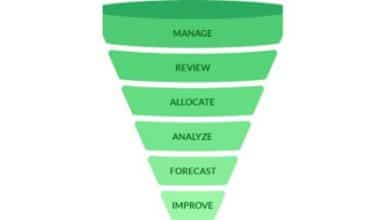Consider becoming a talent manager if you want to work in the entertainment industry and use your interpersonal, leadership, and communication skills. To help them obtain additional job possibilities and flourish in the entertainment sector, these specialists work closely with talented actors, singers, authors, models, and social media influencers. Being a talent manager may necessitate making relationships and expanding your business knowledge in order to give clients helpful advice and recommendations. In this post, we examine what talent manager does, how much they earn, and how to become a great talent manager. We will also look at some great talent manager software solutions in 2023.
Who is a Talent Manager?
A talent manager is an entertainment business expert that works with actors, models, and performers to assist them to develop their fan following, acquire additional job or financial opportunities, and schedule public appearances. Several talent managers form personal ties with their clients in order to advise them on contract negotiations, auditions, and product partnerships with other corporations. They may specialize in a certain sector or platform of entertainment management, such as cinema and television, books, social media, music, or theater.
Most talent managers have extensive expertise and experience working in the entertainment sector to ensure they provide efficient guidance to customers. These four fundamental steps can be included in the talent management model:
- Planning: As a new show begins, the manager meets with the production executives to establish how many people will be needed. This includes how many individuals the show needs, how long the show needs the various talent, and what skills and experience candidates require.
- Attracting: The second stage involves recruiting the best candidates, who can come through the manager’s broad contact list or by advertising job descriptions online. They can also locate new talent by asking their network for referrals.
- Selecting: The third stage entails establishing a shortlist of candidates and sending it to the production manager and series producer for the interview process. They can also negotiate contracts.
- Retaining: Even after the production is complete, it is critical to keep track of the talent in case they are suited for future projects.
What Does a Talent Manager Do?
Talent managers may find clients on their own or be assigned clients by their bosses. They may check portfolios, read film or television scripts, or attend talent showcases when looking for new clients. After providing clients with chances, a talent manager may receive 10% to 20% of the profits as remuneration. Some frequent roles a talent manager may have include:
- Finding prospective talent via evaluating online work or attending performances
- Prospective clients are being pitched on their services and rates.
- Creating marketing tactics to assist customers to advertise themselves and develop their platform
- Arranging contracts and other commercial arrangements with production firms or persuading partners
- Arranging appearances on podcasts, radio, television, commercials, and films to assist clients in increasing brand exposure and fan base.
- Providing assistance and counsel to clients regarding their careers
- Managing communication between clients and other firms to communicate crucial information and requirements for upcoming partnerships or performances
How To Become a Talent Manager
To become a successful talent manager, follow these steps:
#1. Get a degree
Many employers may need you to have a high school graduation, while others may prefer that you have a bachelor’s degree. Consider a bachelor’s degree in communications, marketing, public relations, management, or a similar discipline. Getting this degree might help you comprehend how to manage others and conduct business transactions or contract negotiations, which are some of the role’s major tasks. You might also minor or acquire a different degree in fine arts, film production, or another comparable field to expand your expertise and connections in the entertainment industry.
#2. Work in the entertainment sector to gain experience
If you have firsthand experience working or performing in the entertainment sector, you may find it easier to advise or manage customers in that field. Consider applying for internships or production assistant roles to better understand how different positions work in the sector, as both of these tasks involve supporting numerous positions on a set.
Most employers might feel more at ease hiring an experienced talent manager because it may attract more well-known clientele. These customers may be urged to engage with an established talent manager who understands the sector and can advise them on how to obtain high-paying jobs.
#3. Make connections with professionals in the field.
As you continue to work in the entertainment industry, you may meet other experts with several years of expertise in the field of entertainment that you handle. These could be personnel from your management firm or persons interested in recruiting your clients for opportunities.
Strive to meet as many significant people in the industry as you can by developing effective, long-lasting relationships with them. These individuals may be able to connect you with other established employees who may be able to provide your clients with unique options. Try developing relationships with other managers, since they may be able to refer you to their notable clientele if they decide to seek other opportunities.
#4. Identify your niche
Some talent managers may represent clients from many industries. Others may concentrate on a single niche in order to become an expert in that field and so locate more tailored possibilities. Consider working with numerous clients if you have experience in all facets of entertainment.
For those who choose to focus on one topic, choose one in which you have the greatest experience or is most relevant to your professional history. For example, as a social media manager, you may be in charge of influencer clients if you have experience with marketing or social media accounts.
#5. Become a member of a support group
A professional talent management organization often consists of experienced industry personnel who may share ideas, resources, and advice with one another. This can be yet another successful method of networking and connecting with others who can give chances to you and your clients. The Talent Managers Association is a prospective organization that you should consider joining because it provides industry news and a network of professionals to keep you up to date on industry activities.
What are the Required Skills for a Talent Manager?
Acquiring the following skills can help you succeed in this field:
#1. Social skills
In this industry, good social skills are required. They allow you to network with other professionals in the field, meet new people, and form long-term professional partnerships. Maintaining a confident demeanor will aid you while you pursue these partnerships. Possessing social skills is also useful while negotiating contract agreements with a customer, agency, or employer.
#2. Communication skills
It is essential to have strong written and vocal communication skills. Because your job requires you to manage interpersonal interactions, you must be able to communicate properly. As a result, an open and communicative environment must be created between the talent and the agency or firm. Because you will most likely come into contact with a diverse group of people during your work, being able to communicate effectively can be beneficial.
#3. Organizational Skills
When operating in this position of responsibility and authority, outstanding organizational skills are required. They enable you to multitask effectively while keeping track of a huge number of contacts. Being organized also allows you to work under pressure and fulfill deadlines. Time management, task prioritization, and effective planning are all valuable skills to have in this field.
#4. Problem-Solving Skills
It is extremely beneficial to your career if you improve your problem-solving skills. Critical thinking and sound judgment can propel you to prominence in the entertainment sector. These skills will come in handy in an emergency, such as when the production firm needs new or additional personnel on short notice. Having a backup plan in place at all times reduces these risks.
Template for a Job Description for a Talent Manager
We are seeking an accomplished talent manager to oversee the business affairs of diverse artists. A talent manager is responsible for finding talent, signing clients, and negotiating contracts. You should also book engagements for clients and show an entrepreneurial spirit.
To be successful as a talent manager, you must understand what it takes for talent to succeed, have a good eye for talent, and be able to develop trust to sign clients. Finally, a high-quality talent manager has strong commercial acumen and outstanding presenting skills.
Responsibilities of a Talent Manager.
- Preparing and presenting pitches to potential clients
- assessing talent.
- Organizing auditions.
- Doing market research on potential customers.
- Making marketing plans to promote clients.
- Negotiating potential business transactions.
- Obtaining and promoting gigs and performances.
- Bachelor’s degree in marketing, management, or a similar subject is required for the position of Talent Manager.
- Working with talent is a plus.
- Great pitching skills.
- Knowledge of the entertainment sector.
- Ability to network and keep professional ties.
- Good marketing expertise.
With Whom Does a Talent Manager Collaborate?
Depending on their backgrounds, talent managers may work with a variety of customers. In this line of work, you might represent the following clients:
- Athletes
- Musicians
- Authors and writers
- Actors
- Dancers
- Bands
- Singers
- Additional artists
You may have a particular interest and prefer to work with clients who share that interest, or you may want to specialize in a specific type of athlete or performer based on where you reside.
These experts must collaborate with others in addition to working with clients. For instance, a talent manager may need to collaborate with a casting director to secure auditions for their client. They might also collaborate with family members, talent agents, or interns.
Average Salary of Talent Manager
A recruitment manager makes an average monthly salary of $6,476. This sum can change depending on your popularity, the number of clients you have, and the firm that hires you. It may also vary depending on your industry of specialization. You can make money through commissions, a yearly salary, or both. Common advantages include:
vacation days dental insurance medical insurance vision insurance
What is Talent Manager Software?
All talent management processes can be automated with the help of talent management software. These technologies offer organizations, HR professionals, and managers a comprehensive selection of tools to handle all employee lifecycles, from recruitment to offboarding. Recruiting, training and development, performance management, and pay management are the four basic subcategories of talent management systems.
Why Do You Need a Talent Manager Software?
Small business owners, HR professionals, and managers can automate and streamline all procedures related to the talent pool with the aid of talent management software. These technologies can help HR personnel spend less time on administrative tasks, improve the candidate experience and talent pipeline, increase employee engagement and onboarding, and streamline the offboarding process.
Who Uses a Talent Manager Software?
A process-oriented approach to hiring, training, performance management, employee engagement, offboarding, and other tasks is provided by talent management software systems for organizations, HR departments, and other employees.
Types of Talent Manager Software
Talent manager software is organized into numerous software categories that offer solutions from recruiting through offboarding. The following is an overview of the many talent manager software categories and subcategories.
- Career management software — Companies utilize this form of a talent management solution to help their employees’ career development as well as for strategic succession planning and management.
- Compensation management software – Companies, HR personnel, and manager utilize this sort of talent management system to monitor salaries, schedule employee bonuses, and recommend pay increases.
- Employee engagement software – This talent management tool helps firms keep a pulse on their organization and employees using pulse surveys that collect employee feedback, evaluate employee attitudes, and promote staff achievements.
- Employee recognition software – Companies, HR personnel, and manager utilize this talent management tool to track employee achievement and incentivize employees with awards.
- Exit interview software – This type of talent management software automates the exit interviewing process and offers users actionable findings.
- Offboarding Software – Companies, HR personnel, and manager utilize offboarding software to organize the offboarding process and track all forms and paperwork required to process employee exits and terminations.
- Performance management software – Companies use this talent management solution to define employee performance standards and evaluate individuals using 360-degree feedback.
- Recruitment software – These talent management tools assist firms in recruiting, hiring, and onboarding new employees. The following subcategories of recruitment solutions exist employee referral software, job boards software, job description management software, pre-employment screening software, recruiting automation software, talent acquisition suites software, and video interviewing software.
- Relocation management software — These talent management solutions offer relocation solutions that assist HR staff in tracking, administering, and managing relocation management programs.
- Training eLearning software – These talent management solutions assist firms and HR departments in facilitating employee or customer training, education, and professional development. Corporate learning management system (LMS) software, course authoring software, eLearning content software, learning experience platform (LEP) software, mentoring software, micro-learning platforms, and training management system software are the subcategories of training and eLearning software.
Read Also: How To Become a Project Manager: Step-by-Step Guide
Best Talent Manager Software in 2023
#1. Monday.com
Monday.com offers employee management software with features for tracking your talent pipeline and engaging staff. It provides insight into employees’ daily performance. It assists you in managing the performance evaluation process. Workers can submit vacation requests and will be notified when they are approved.
A recruitment pipeline can assist you in managing and optimizing your personnel recruitment procedures. Internal planning and collaboration with the hiring manager will be streamlined. You will be able to simply monitor the candidate’s performance.
Features:
- Pipeline recruiting
- The Onboarding Procedure
- Employee well-being
- Requests for leave
- Performance evaluations
- Excellent for personnel management and talent pipeline tracking.
#2. Insperity
Best for full-service HR Management for all types of enterprises.
With Insperity, you get a comprehensive full-service HR platform that streamlines and simplifies all parts of an organization’s talent management process. Businesses of all sizes can benefit greatly from Insperity’s assistance with anything from employee benefits to risk and payroll management.
Insperity is home to highly skilled and experienced HR specialists who are always available to assist you. They provide individualized advice and resources to help you find the appropriate talent for your company. They also train the hired talent to improve their performance.
We particularly appreciate how Insperity handles the administrative and compliance burdens connected with employee benefits. As a result, you can easily provide your employees with access to benefits from dental, medical, vision, and accident insurance.
Features:
- Sources of Talent and Hiring
- Payroll and HR Administration
- Employer Liability management with reference to compensation coverage, liability insurance, etc.
- Real-time assistance with HR compliance.
- A centralized platform for managing all areas of human resources.
#3. Bambee
This is the best option for compliant employee onboarding and termination.
Bambee is a talent management software that primarily caters to the demands of small organizations. Bambee’s services are suitable for businesses that want to expedite their onboarding and termination processes while remaining in compliance with labor rules.
Bambee provides managers with customized report cards that allow them to track staff performance. Users can then express their appreciation or feedback to the employee directly through an open communication channel. Workers are also given a platform to express their genuine ideas. Aside from that, Bambee assists with employee training on critical topics such as sexual harassment, ethics, and so on.
Features
- Employee coaching and guidance
- Assistance with employee onboarding and training
- HR problem solving
- Creating Unique HR Policies
- Payroll Management with Guidance
#4. TalentSoft
TalentSoft is an excellent talent management tool that assists talent manager in meeting their various needs. The software includes modules for handling several aspects of talent management, including hiring, performance, compensation, training, and workforce planning.
The software is especially well-suited for managing multinational staff. It can also be scaled up or down based on the needs of the organization.
Features:
- Cloud, Web, and SaaS deployment for online talent management
- LMS stands for Learning Management System.
- Management of Compensation
- Performance Monitoring
- Management of Recruiting
- Preparing for Succession
- Support for several languages – Over 25 languages are supported.
- Recruitment, Sourcing International Talent, and Internal Employee Development.
#5. iCIMS Talent Acquisition
iCIMA Talent Acquisition is a user-friendly and adaptable talent management tool. The software includes a number of features that make it a complete solution for hiring and managing personnel. It includes career site search, social media dissemination, and even career site search engine optimization.
It has features and tools that can assist recruiters in performing their duties more efficiently. Mobile and AI engagement, candidate connection management, application tracking, offer management, and employee onboarding solution are some of the highlights of the employee management software.
Features:
- Interview management
- Management of internal human resources
- Background Screening
- Employee Evaluation
- Job Vacancy
- Integration of a job board
- Social media integration
- Best for: Recruitment, onboarding, and applicant tracking.
Conclusion
With technology, a talent manager can streamline the process of hiring and managing staff. IBM Talent Management or Oracle HCM Cloud should be used by large organizations.
TalentSoft, Zoho Recruit, and iCIMS Talent Acquisition are available to small and medium-sized businesses. Saba provides a complete talent management solution.
When choosing talent management software, examine the pricing and features. The choice will ultimately be determined by the needs of the business and the budget.
Related Articles
- TALENT MANAGEMENT SYSTEM: Definition, Examples & How it Works
- CANDIDATE RELATIONSHIP MANAGEMENT SYSTEMS: Guide To The Processes
- Talent Management: Meaning, Systems & Basic processes
- RECRUITMENT COMPANIES: Top Recruitment Companies In The United States 2023
- Recruiting Agency: Best Agencies and What You Should Know






